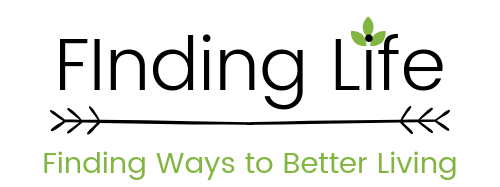If you are anything like us, when you first started learning about personal finance and retirement accounts, some of the terms around 401ks confused you.
To help you understand what your HR or 401k provider are saying to you and give you a solid foundation for building out your retirement plan, we’ve broken down the most frequently asked 401k questions we’ve been asked.
Don’t see your question on the list? Shoot us a message and we’ll be happy to help!
401k Frequently Asked Questions
What Is a 401k?
A 401k plan is a type of retirement investment account offered by employers to US workers as part of their compensation package.
Within 401k plans, employees are able to invest in various options, such as mutual and index funds, individual stocks, bonds, and more.
Who Is Eligible For a 401k?
In very general terms, if your employer offers a 401k plan, you are eligible. (If you are self-employed, you can have a solo 401k, but a standard 401k plan is offered only through employers).
Your employer can put some restrictions on your eligibility based on your age or time of service, but employees must be allowed to participate in a qualified plan if they are 21 or older (with no maximum age limit) and have at least one year of service (this is measured as 1,000 hours of service performed during the plan year, regardless of if 12 months were worked or not).
An employer may also choose to exclude employees who are covered under a collective bargaining agreement (unionized employees) or certain nonresident aliens.
What Are The Benefits Of a 401k?
We think the benefits are so important, we wrote an entire post on why you need to be using your 401k. (Hint, free money and tax advantages).
What Are 401k Contributions?
A 401k contribution is the term for the money that you contribute, or put into, your 401k.
This is money from your paycheck that you have added to your 401k account. Usually a contribution is entered as a percent of your income or a dollar amount per paycheck.
What Are Employer Contributions/Employer Match?
An employer may contribute to your 401k freely, as profit sharing, or as a “match” of your contributions. This means they will contribute, or give you, additional money in your 401k plan on top of what you put in. This is free money!
Most employers have a rule that they will only contribute to your 401k if you do as well; this is the “match.” This is one of the main reasons you should be contributing with every paycheck- if you do, they will too, don’t leave that money behind!
What Are Contribution Limits?
Contribution limits is the term for how much money the IRS will let you put into your 401k from your own income annually. This is the total amount you can put in your 401k account for a year, but does not include any additional funds from your employer (their match). For 2019 this amount is $19,000.
This is where the idea of/term “maxing out” comes from- maxing out means putting in the maximum amount of money the IRS will let you, or the contribution limit, into your 401k each year.
How Much Should I Contribute To My 401k?
This is really a personal choice based on how much you can afford to have stocked away instead of using in the immediate term. Although we can’t tell you how much you should contribute, we can tell you we are biased and think you should contribute as much as you possibly can (up to the IRS limit).
At the very least we would say you should contribute enough to get your employer’s match. Don’t miss out on free money!
Can I Make A Lump Sum Contribution?
Unfortunately, no. You can’t take money you have saved elsewhere and deposit it into your 401k.
One way to increase your contributions to make up for lost time, however, is increasing your contributions from your upcoming paychecks (if your company’s plan allows).
What Is Vesting?
Vesting is the term for how much of the money in your 401k you own.
You always own 100% (or are 100% vested) in the money you contributed, but the contribution by your employer may have a vesting schedule or vesting rules that state when you gain 100% ownership of those funds.
For example, in Mrs. FInding’s 401k, there is a vesting schedule where for every year of service she is vested another 25%. After 4 years, she is 100% vested. If she were to leave her job earlier than 4 years, she would not get to keep all her employer’s contributions, only the percent which she had earned (i.e. 50% if she left after 2 years, but before 3).
Each employer and plan will have it’s own vesting schedule, your HR contact should be able to tell you the vesting rules for your company.
When Can I Take Out/Withdrawal Money From My 401k?
Because a 401k is a retirement account, you are not allowed to withdraw money before age 59 ½ (or you face a large financial penalty), unless you meet one of these conditions:
- “Separation from service”- this is a rule that if you stop working for your employer after you turn 55, you can withdraw your money penalty-free. This applies if you quit your job, get fired, or retire.
- “Substantially equal periodic payment”- this rule state that you may be able to access your account early at any age if you agree to withdraw the funds in a series of “substantially equal payments” based on your life expectancy. The IRS defines life expectancy in their life expectancy tables. There are some big caveats with this option, however, so we would suggest you read more details before choosing this option.
Can I Borrow From My 401k?
Yes, you can technically borrow your own money from your 401k, but we (and many advisors) would highly advise against this as you will pay large fees and interest and you may even end up paying taxes twice on these funds.
What Is The Difference Between a Roth 401k And a Traditional 401k?
You may have heard of a Roth IRA and a Traditional IRA, Roth being composed of post tax funds and Traditional of pretax funds.
Roth 401ks and Traditional 401ks work similarly, they are 401k plans that have different options regarding when your money is taxed- either before it is contributed or upon withdrawal.
Not all 401k plans offer both a Roth and a Traditional option, usually when people say “401k” they are referring to a traditional 401k, where you are contributing with pretax dollars. Your HR representative should be able to tell you which option(s) you have.
If you are still a little blurry on the different between Roth and Traditional funds, check out our post explaining the difference and benefits of each.
What Happens If I Change Jobs?
When you change jobs, you usually have 1 of 2 options with your 401k from your previous employer:
- Depending on your plan and previous employer’s rules, you may be able to keep your 401k as is. Usually 401k plans are held with third parties, such as Fidelity, and your money can stay there as long as you have the minimum required funds.
- If you are not able to keep your 401k where it was with the previous employer or you prefer to have your 401k plans consolidated, you have 3 options.
- You can do a rollover IRA. This means you rollover your funds from your previous 401k into an IRA plan with a company of your choosing.
- You can do a rollover 401k. If your new company allows, you can rollover your previous 401k funds into your current/new 401k plan.
- You can cash out your 401k. We would never recommend this as it will have serious fees and goes against the idea of saving for retirement, but it is an option.
Can I Contribute To a 401k And an IRA?
Yes, you are able to (and should!) contribute to both a 401k and an IRA (individual retirement account). There are some restrictions on what is tax deductible, but you are allowed to contribute to both.
What Should I Invest In Within My 401k?
This really isn’t a question anyone can answer for you as we don’t know what specific options you have in your 401k plan, your overall goals, or asset allocation elsewhere. What we can say is that there are some basic things to consider when deciding what to invest in within your 401k:
- Remember that this is part of your overall investment portfolio, so choose an asset allocation that fits with or complements your total portfolio.
- Watch out for fees! Many times you are auto-enrolled in target date funds, while these are a good option for hands off and beginner investors, they usually have much higher fees.
Where Does the Name 401k Come From?
Quite un-interestingly, the name 401k simply refers to the IRS code section that defines this account type.




